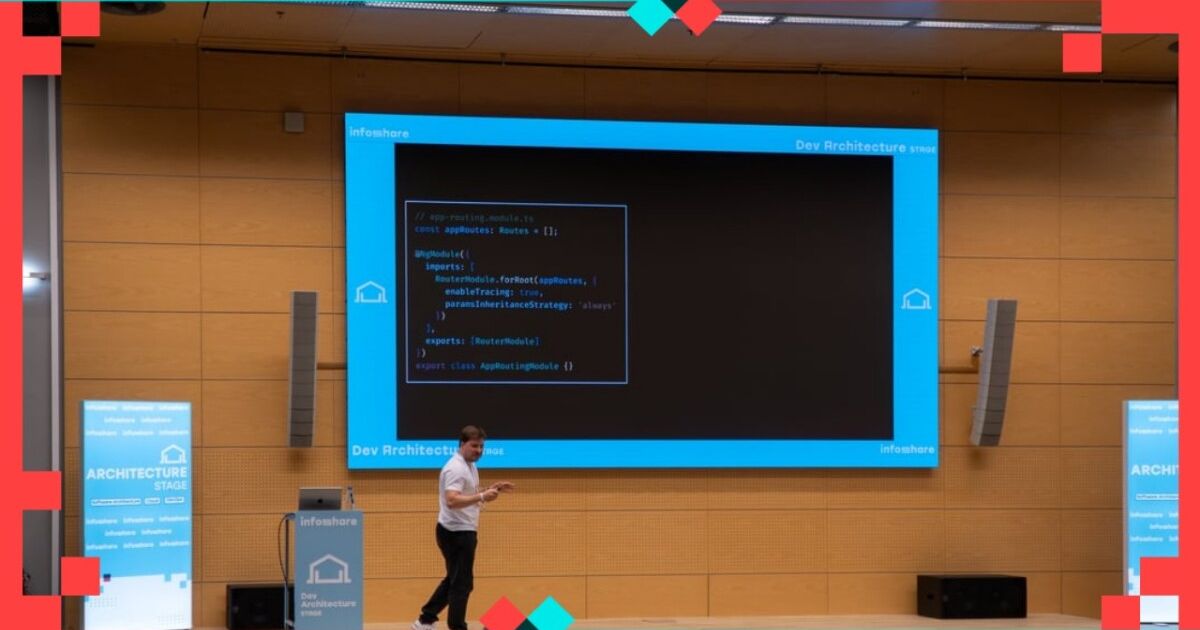VIEW SPEECH SUMMARY
Overview:
- The talk focused on recent improvements in Angular, emphasizing simplification, performance, and ease of use.
- Addressed common misconceptions about Angular being complex, heavy, and slow.
- Highlighted three key milestones advancing Angular: Standalone API, Signal-based API (reactivity), and Zoneless Angular.
1. Standalone API:
- Previously, Angular required components to be part of NgModules, which added complexity and was a barrier for beginners.
- Standalone components allow components to be self-contained without needing NgModules.
- Features introduced include:
- Component property `imports` to declare dependencies.
- A new `bootstrapApplication` function to start an Angular app by bootstrapping a component directly.
- Improved provider configuration for root injectors.
- Benefits:
- Reduced boilerplate and learning overhead.
- Smaller bundle sizes due to better tree shaking.
- Advanced lazy loading with deferable views that let developers lazy-load components as they enter the viewport, improving user experience.
2. Signal-based API (Reactivity):
- RxJS has been Angular's traditional reactive library but has a steep learning curve and is complex for synchronous state management.
- Signals provide a simpler, synchronous-reactivity model built into Angular core.
- Key aspects:
- Signals notify dependents directly on changes, avoiding complexity of RxJS streams for simple state management.
- Offers built-in asynchronous integration via resources (e.g., HTTP resource).
- Interoperability with RxJS, allowing gradual adoption.
- Benefits:
- Simplifies reactive programming concepts.
- Makes lifecycle hooks mostly obsolete.
- Potential to reduce dependency on RxJS in the future, minimizing bundle size.
- Enables architectural improvements like zoneless Angular.
3. Zoneless Angular:
- Current Angular relies on `zone.js` for change detection by patching asynchronous APIs.
- Challenges with `zone.js` include debugging difficulties, additional overhead, and imprecise change detection leading to entire component tree checks.
- Signals allow local change detection supporting zoneless Angular apps:
- Change detection will be scoped to only components whose state changed.
- Results in simpler, easier to debug, and more efficient runtime.
- Removes the need for `zone.js`, reducing bundle size.
- Improves runtime performance by lowering change detection workload.
Actionable Items / Tasks:
- Angular developers should explore and adopt the standalone component API to simplify app architecture and reduce bundle sizes.
- Start integrating signal-based reactivity for state management, especially for synchronous use cases, while maintaining RxJS for complex reactive scenarios.
- Prepare for zoneless Angular by understanding signals and how local change detection works to leverage improved performance and debugging experience.
- Consider leveraging deferable views with lazy loading at the template level to improve app load time and user experience.
- Keep updated with upcoming Angular releases to smoothly transition from RxJS heavy apps to lighter, signals-driven apps.
- The talk focused on recent improvements in Angular, emphasizing simplification, performance, and ease of use.
- Addressed common misconceptions about Angular being complex, heavy, and slow.
- Highlighted three key milestones advancing Angular: Standalone API, Signal-based API (reactivity), and Zoneless Angular.
1. Standalone API:
- Previously, Angular required components to be part of NgModules, which added complexity and was a barrier for beginners.
- Standalone components allow components to be self-contained without needing NgModules.
- Features introduced include:
- Component property `imports` to declare dependencies.
- A new `bootstrapApplication` function to start an Angular app by bootstrapping a component directly.
- Improved provider configuration for root injectors.
- Benefits:
- Reduced boilerplate and learning overhead.
- Smaller bundle sizes due to better tree shaking.
- Advanced lazy loading with deferable views that let developers lazy-load components as they enter the viewport, improving user experience.
2. Signal-based API (Reactivity):
- RxJS has been Angular's traditional reactive library but has a steep learning curve and is complex for synchronous state management.
- Signals provide a simpler, synchronous-reactivity model built into Angular core.
- Key aspects:
- Signals notify dependents directly on changes, avoiding complexity of RxJS streams for simple state management.
- Offers built-in asynchronous integration via resources (e.g., HTTP resource).
- Interoperability with RxJS, allowing gradual adoption.
- Benefits:
- Simplifies reactive programming concepts.
- Makes lifecycle hooks mostly obsolete.
- Potential to reduce dependency on RxJS in the future, minimizing bundle size.
- Enables architectural improvements like zoneless Angular.
3. Zoneless Angular:
- Current Angular relies on `zone.js` for change detection by patching asynchronous APIs.
- Challenges with `zone.js` include debugging difficulties, additional overhead, and imprecise change detection leading to entire component tree checks.
- Signals allow local change detection supporting zoneless Angular apps:
- Change detection will be scoped to only components whose state changed.
- Results in simpler, easier to debug, and more efficient runtime.
- Removes the need for `zone.js`, reducing bundle size.
- Improves runtime performance by lowering change detection workload.
Actionable Items / Tasks:
- Angular developers should explore and adopt the standalone component API to simplify app architecture and reduce bundle sizes.
- Start integrating signal-based reactivity for state management, especially for synchronous use cases, while maintaining RxJS for complex reactive scenarios.
- Prepare for zoneless Angular by understanding signals and how local change detection works to leverage improved performance and debugging experience.
- Consider leveraging deferable views with lazy loading at the template level to improve app load time and user experience.
- Keep updated with upcoming Angular releases to smoothly transition from RxJS heavy apps to lighter, signals-driven apps.
From Complexity to Powerful Simplicity – How Angular Becomes Better Than Ever
17:20 - 17:50, 27th of May (Tuesday) 2025 / DEV ARCHITECTURE STAGE
Over the past few years, Angular has undergone a remarkable transformation, becoming faster, lighter, and easier to learn. At the same time, it has retained its power and flexibility, making it a perfect fit for projects of any scale—from small startup prototypes to complex enterprise applications. In this talk, I will explore Angular’s evolution, highlight key improvements that have made it more efficient and developer-friendly, and explain why it remains one of the most well-balanced choices for modern web development.
LEVEL:
Basic
Advanced
Expert
TRACK:
Dev Software
TOPICS:
Front-end
Java Script
JS Frameworks
WebDev



